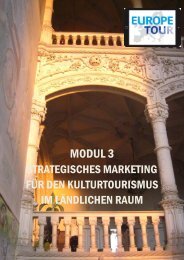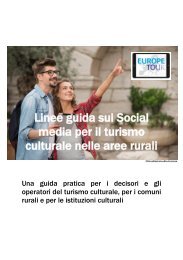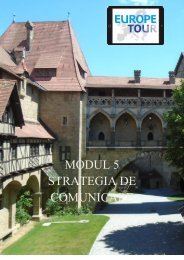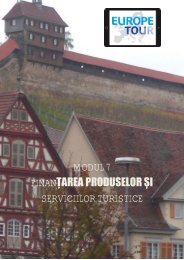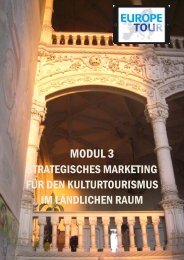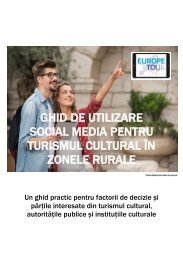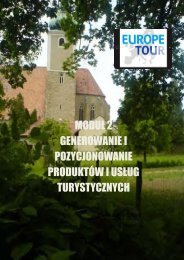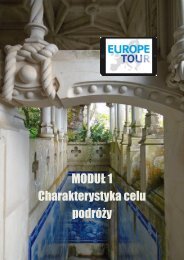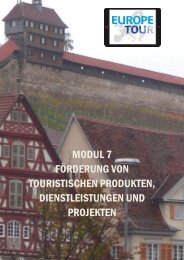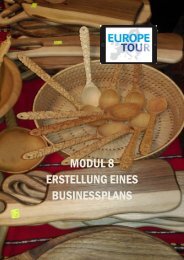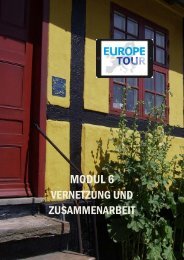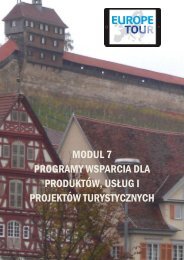Module_0_Introduction_to_Training_Modules
You also want an ePaper? Increase the reach of your titles
YUMPU automatically turns print PDFs into web optimized ePapers that Google loves.
CULTURAL TOURISM TRAINING COURSE<br />
MODULE 0 - INTRODUCTION<br />
Why training for cultural <strong>to</strong>urism?<br />
Cultural <strong>to</strong>urism in rural areas is a chance for raising awareness and generating employment, income<br />
and better living conditions. However, cultural <strong>to</strong>urism for rural areas has not reached a level of<br />
professional qualification and communication that is comparable <strong>to</strong> cultural <strong>to</strong>urism in urban areas. The<br />
need for qualification is obvious – likewise for voluntary and professional ac<strong>to</strong>rs from culture, <strong>to</strong>urism<br />
and all kind of service providers offering <strong>to</strong>urism services, accommodation, gastronomy, transportation,<br />
farms, cultural institutions etc.<br />
Ac<strong>to</strong>rs from culture and <strong>to</strong>urism are usually not trained <strong>to</strong> work <strong>to</strong>gether; they “speak very different<br />
languages”. Cooperation is therefore a major issue for <strong>to</strong>urism providers and especially people working<br />
in rural cultural institutions. They need good training materials in order <strong>to</strong> improve their skills in the<br />
development and positioning of their cultural-<strong>to</strong>uristic products and services, in marketing, sales<br />
channels, financial planning and finally business development. To cut a long s<strong>to</strong>ry short: this is <strong>to</strong><br />
make use of an enormous potential which rural areas have <strong>to</strong> offer!<br />
The Europe<strong>to</strong>ur <strong>Training</strong> Course<br />
In order <strong>to</strong> meet the demand for training the most relevant issues, EUROPETOUR developed a multilingual<br />
training course, containing a set of eight modules that cover the following <strong>to</strong>pics:<br />
• M1 Destination characterization (strength & weaknesses, <strong>to</strong>urism policies, data analysis)<br />
• M2 Development and positioning of <strong>to</strong>uristic products and services (target groups, partners,<br />
outreach)<br />
• M3 Marketing strategy and planning (instruments, evaluation)<br />
• M4 Distribution and sales channels (sales partners of cultural <strong>to</strong>uristic products)<br />
• M5 Communication strategy and planning (PR, social media, press relations, data analysis)<br />
• M6 Networking and Cooperation (identification of stakeholders, development of network<br />
infrastructure)<br />
• M7 Financial planning (access <strong>to</strong> funding, funding models, funding skills)<br />
• M8 Development of a business plan<br />
Do you want <strong>to</strong> know if this training is for you?<br />
This course is of interest for everybody working in the cultural and <strong>to</strong>urism sec<strong>to</strong>r in rural areas:<br />
• small and medium size museums and collections that focus on the local environment and<br />
his<strong>to</strong>ry<br />
• volunteers working in cultural institutions<br />
• amateur theatres and orchestras<br />
• poets<br />
6



